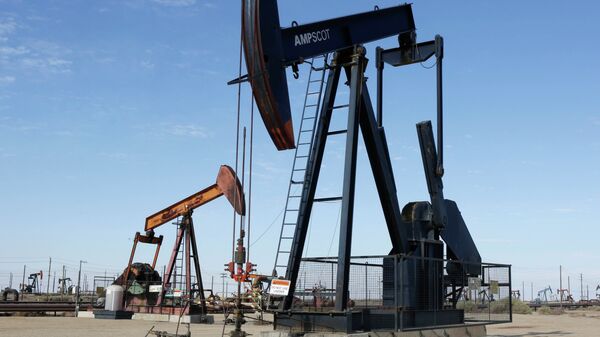At a climate summit in Paris on Tuesday, December 12, the President of the World Bank, Jim Yong Kim, said it would stop financing oil and gas exploration and extraction from 2019.
"In exceptional circumstances, consideration will be given to financing upstream gas in the poorest countries where there is a clear benefit in terms of energy access for the poor and the project fits within the countries' Paris Agreement commitments," the World Bank added, by way of clarification.
To align our support to countries seeking to meet their Paris Agreement goals, we announced today that we will no longer finance upstream oil and gas after 2019. Our statement: https://t.co/uSGZjZiQKM #OnePlanet pic.twitter.com/4M7nPXliVN
— Jim Yong Kim (@JimYongKim) 12 December 2017
The summit also heard Dutch bank ING announce plans to reduce its investments in coal power generation to zero by 2025 and Norway's giant Storebrand pension fund unveil an increase in its fossil-free investments to US$3 billion.
'Historic Announcement'
Stephen Kretzmann, the executive director of Oil Change International, said it was "hard to overstate the significance of this historic announcement" by the World Bank.
Campaigners against fossil fuels in Europe also welcomed the move.
"This seismic shift away from fossil fuel extraction shows that the divestment campaign is winning at all levels. But there is still a long way to go, with some of the biggest offenders, including Barclays, still funding the Keystone XL pipeline, tar sands in Canada and other projects worldwide," Annie Pickering, a campaigner at UK student campaigning network People & Planet told Sputnik.
We only have #OnePlanet. If we commit the right resources, move boldly & swiftly to harness innovation and drive progress, we can ensure this world remains one we’ll be proud to leave to our children. pic.twitter.com/BJag7kmtfQ
— Jim Yong Kim (@JimYongKim) 12 December 2017
"With Axa insurance divesting from coal and tar sands, two Chinese banks pulling out of the Adani Coal mine in Australia and (Jeremy) Corbyn and the Labour party throwing their weight behind the Divestment Parliament campaign, all in the last week, it is clear Fossil Fuels companies are losing popularity and legitimacy," she added.
Universities Divesting
Ms. Pickering said students around the UK were winning their divestment campaigns, with over a third of UK universities committed to divesting from fossil fuels and students were now protesting outside Barclays bank branches in the UK in a bid to persuade them to divest.
This is huge: World Bank ending funding for oil and gas extraction. Keep it the ground https://t.co/58qyEWIECl
— Bill McKibben (@billmckibben) 12 December 2017
"The World Bank rightly needs to clean up its act, to provide finance for a just transition rather than financing international extractivist companies whether that be oil or other natural resources at the expense of local communities. The World Bank, however, have still given themselves a caveat to invest in fossil fuels 'in exceptional circumstances' and it remains to be seen how this will be used," Ms. Pickering continued.
The World Bank said it was on track to meet its target of 28 percent of its lending going towards "climate action" by 2020.
The summit was organized by French President Emmanuel Macron, who has been pressing for fossil fuel investment money to be switched to more renewable energy.
UN Secretary-General Antonio Guterres has said subsidizing fossil-fuels was humanity "investing in its own doom."
World Bank to stop funding oil and gas extraction. (While the Australian government wants to subsidise new coal mines and power plants.) https://t.co/dEM64KQ3SO
— No New Coal Mines (@NoNewCoalMines) 13 December 2017
"We are in a war for the very existence of life on our planet as we know it," Mr. Guterres told the summit, which was attended by British Prime Minister Theresa May, Spanish Prime Minister Mariano Rajoy and Mexican President Enrique Pena Nieto.
Oil Change International recently published research which claimed public finance institutions controlled by G20 governments, along with the World Bank, invested US$71.8 billion per year on fossil fuels, compared with only US$18.7 billion for renewable energy.
The views and opinions expressed by Annie Pickering are her own, and do not necessarily reflect those of Sputnik.


